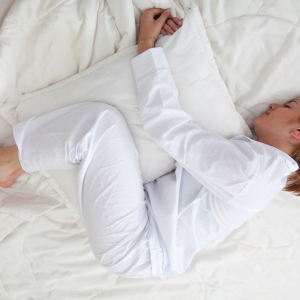 Diet, exercise and sleep are often grouped together as a sort of “holy trinity” of wellness. Being a nutritionist, I focus largely on diet but, as a holistic nutritionist, I also counsel my clients on how important quality sleep, stress reduction (be the stress physical, mental or environmental) and appropriate exercise is for health.
Diet, exercise and sleep are often grouped together as a sort of “holy trinity” of wellness. Being a nutritionist, I focus largely on diet but, as a holistic nutritionist, I also counsel my clients on how important quality sleep, stress reduction (be the stress physical, mental or environmental) and appropriate exercise is for health.
To me, however, sleep is more than just one third of the trinity. Sleep is the absolute foundation of wellness. A chronically under-slept person is unlikely to have the time or energy to make sound nutritional choices or exercise. And, as you will see, poor sleep leads to a cascade of physiological effects that significantly impair health.
As a result, it is one of the first things I discuss with my clients. “Sleep to your health”, I say (in place of the old adage “drink to your health”)!
So often, being told to do something (like eat more vegetables) because “it’s good for you” is not enough. Sometimes you need scare tactics to drive the point home. I didn’t religiously wear my night guard to protect my teeth until my dentist casually mentioned my molars might crumble. Now that had impact! So, in that spirit, I lay out the myriad reasons why, if you don’t snooze, you lose.
Much of what I present here is sourced from the fascinating book Why We Sleep: Unlocking The Power of Sleep and Dreams, by Matthew Walker, Director of UC Berkeley’s Sleep and Neuroimaging Lab. I highly recommend it. Here I focus mainly on the physiological effects of sleep and leave the dream weaving to Dr. Walker.
This is a somewhat longer post than usual. It became so long that I decided to split it into two, so this is really just half of it and part two will follow in a week or so. I hope this first half doesn’t put you to sleep…or maybe I do! 😉
“Too Extreme for the Guinness Book of World Records”
This is the title of Chapter 7. Since the 1980s, Guinness no longer recognizes attempts to break records for sleep deprivation. Their decision was informed by the weight of evidence of serious harm that results. As Dr. Walker notes, Guinness was still okay with Felix Baumgartner plummeting 128,000 feet in a free fall to Earth at a top speed of 1358 km/h, breaking the sound barrier with his body. That should give you some idea of how dangerous long-term abstinence from sleep is. But what about milder but chronic sleep deprivation, as is a common occurrence for many of us? You might think that couldn’t cause much harm. But you couldn’t be more wrong.
Sleep and Your Mind
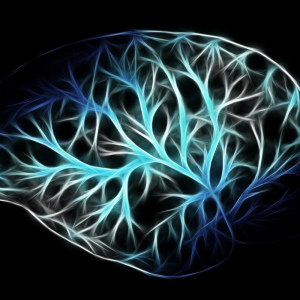 Quality sleep is absolutely crucial to brain health. The brain has a system called the glymphatic system. Like our lymphatic system, it collects and removes metabolic contaminants but in the brain alone. This system is ten- to twenty times more active during deep non-rapid eye movement (NREM) sleep. Dr. Walker calls it a “nighttime power cleanse”.
Quality sleep is absolutely crucial to brain health. The brain has a system called the glymphatic system. Like our lymphatic system, it collects and removes metabolic contaminants but in the brain alone. This system is ten- to twenty times more active during deep non-rapid eye movement (NREM) sleep. Dr. Walker calls it a “nighttime power cleanse”.
Among the contaminants removed are amyloid plaques, which have been linked to Alzheimer’s Disease. Insufficient deep NREM sleep can lead to a build-up of these plaques in the deep sleep-generating regions in our brain. This damages them and, thus, deteriorates our NREM sleep. This then allows further plaque build- up, and further damage/deterioration, in a vicious cycle. Chronic sleep insufficiency significantly increases your risk of Alzheimer’s disease.
Further, as Dr. Walker posits, there is no major psychiatric condition (be it depression, anxiety, schizophrenia, PTSD or bipolar disorder) in which sleep is normal. Many of the regions of the brain involved in these conditions are the same regions that have a role in regulating sleep and are affected by sleep loss. Studies have shown how otherwise healthy people, when sleep-deprived, can experience brain activity similar to many psychiatric conditions. I certainly find that when I don’t sleep well, I feel fairly depressed the next day. Perhaps this is why.
Concentration, too, suffers when even only slightly sleep deprived. In fact, people routinely sleeping less than 7 hours per night are prone to “microsleeps”, where your brain becomes unaware of the outside world for a few seconds. And you likely won’t realize it is happening. “What’s a few seconds”, you say? It’s enough to cause a major accident if you are travelling at high speed behind the wheel of a car.
The last thing I will say about sleep and the brain, before I forget, is this: if you don’t sleep well in any one of the three days following learning, you lose the chance to consolidate those memories, even if you get lots of catch-up sleep.
Sleep and Your Body
According to Dr. Walker, virtually every experiment investigating human sleep deficiency in the last fifty years has observed the sympathetic nervous system (SNS) in overdrive. This is the system responsible for our “fight or flight” or stress response. It is designed to work for short periods of time to help us flee danger in acute situations (running from a burning building, for example). When chronically “switched on”, however, it is very damaging to the body, impacting our cardiovascular, metabolic and immune systems.
Sleep and Heart Health
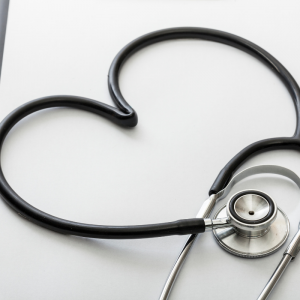 One of the first things the stress response does is remove a “resting break” that normally prevents your heart from beating too fast. After all, if fleeing a burning building, you want your heart pumping to get oxygen and blood to your muscles so you can run fast. Blood pressure also goes up. This is all fine in the short term. But when chronic, as would occur in chronic sleep deprivation, it weakens the vessels of the heart. And growth hormone, a “healer” of the body which normally rises at night, is shut off when in a state of sleep deprivation and so is unable to do its repair work.
One of the first things the stress response does is remove a “resting break” that normally prevents your heart from beating too fast. After all, if fleeing a burning building, you want your heart pumping to get oxygen and blood to your muscles so you can run fast. Blood pressure also goes up. This is all fine in the short term. But when chronic, as would occur in chronic sleep deprivation, it weakens the vessels of the heart. And growth hormone, a “healer” of the body which normally rises at night, is shut off when in a state of sleep deprivation and so is unable to do its repair work.
All this makes your heart more prone to atherosclerosis, heart attack and stroke. One University of Chicago study referenced in the book followed 495 healthy middle-aged adults (none of whom had any signs of heart disease or atherosclerosis at the outset of the study) for 5 years and assessed their sleep throughout. Those that slept fewer than 5-6 hours per night were 200%-300% more likely to suffer calcification of the coronary arteries, relative to those sleeping 7-8 hours.
Sleep and Blood Sugar Regulation
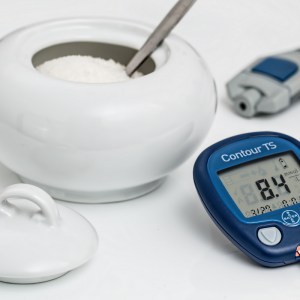 Sleep deprivation appears to increase insulin resistance so that the cells do not respond as effectively to insulin’s message to take up glucose.
Sleep deprivation appears to increase insulin resistance so that the cells do not respond as effectively to insulin’s message to take up glucose.
In one study mentioned in the book, healthy participants were limited to sleeping 4 hours per night for just 6 nights and, by the end of that week, they were 40% less effective at metabolizing glucose compared to their fully-rested selves. This level of impairment would classify a person as pre-diabetic.
There is no sugar-coating it; sufficient sleep is vital for proper blood sugar control.
Sleep, Appetite and Your Weight
 Poor sleep makes you hungrier. It elevates levels of the hormone, ghrelin, colloquially known as the hunger hormone for its role in stimulating appetite. Sleep loss also elevates levels of endocannabinoids in the body. These chemicals are very similar to cannabis and stimulate the munchies (and cravings for sweet and /or salty snacks) in much the same way that marijuana does. Combine this with the fact that sleep loss also suppresses leptin, the hormone which signals satiety in your body, and you have a perfect storm for weight gain. You are ravenously hungry. You munch out on high-calorie snack foods to try to assuage your food cravings. Your satiety signal is muffled so you keep on eating.
Poor sleep makes you hungrier. It elevates levels of the hormone, ghrelin, colloquially known as the hunger hormone for its role in stimulating appetite. Sleep loss also elevates levels of endocannabinoids in the body. These chemicals are very similar to cannabis and stimulate the munchies (and cravings for sweet and /or salty snacks) in much the same way that marijuana does. Combine this with the fact that sleep loss also suppresses leptin, the hormone which signals satiety in your body, and you have a perfect storm for weight gain. You are ravenously hungry. You munch out on high-calorie snack foods to try to assuage your food cravings. Your satiety signal is muffled so you keep on eating.
Dr. Walker describes a study where participants were their own baseline controls. Each participant was given free access to food and experienced the same level of physical activity. When sleeping only 4.5 hours per night for 4 nights, participants consumed an extra 300 calories per day, compared to when they slept 8.5 hours per night. A similar effect is achieved by sleeping 5-6 hours per night (not uncommon for many people) over 10 days. Scaled up to one year, a person will have consumed more than 70,000 extra calories. This could easily translate into a 10 to 15 pound annual weight gain.
To add further insult to injury, poor sleep makes the body more likely to hold on to fat when attempting to lose weight. A study of dieters showed that for those sleeping just 5.5 hours per night, less than 30% of the weight they lost came from fat. For those sleeping 8.5 hours, over 50% of weight loss was from fat (as opposed to muscle).
Also, as I mentioned at the beginning of this post, a sleep-deprived person is unlikely to have the energy to exercise. Exercise is important not only for heart health and weight control, but also for quality sleep. And obesity is a major risk factor for sleep apnea. Once again, a vicious cycle ensues.
Sleep and Your Immune Health
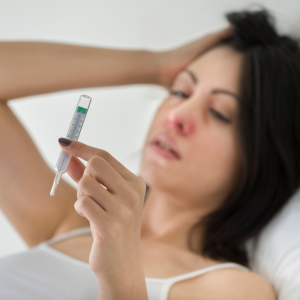 Routinely sleeping less than 6 or 7 hours a night essentially demolishes your immune system. To help make this point, Dr. Walker referred to a study in 2002 which demonstrated the profound effect poor sleep has on the immune system. Two groups of healthy young adults were given the flu vaccine. For the prior 6 nights, one group had been restricted to 4 hours of sleep while the other group had 7.5 to 8.5 hours of sleep. The study showed that the sleep restricted group produced less than 50% of the immune/antibody-generating response of the fully rested group. It also found that even after 2 to 3 weeks of recovery sleep, the sleep deprived group never developed the full immune reaction to the vaccine. Similar studies have been done with Hepatitis A and Hepatitis B vaccines. So always be sure to sleep well prior to any vaccinations.
Routinely sleeping less than 6 or 7 hours a night essentially demolishes your immune system. To help make this point, Dr. Walker referred to a study in 2002 which demonstrated the profound effect poor sleep has on the immune system. Two groups of healthy young adults were given the flu vaccine. For the prior 6 nights, one group had been restricted to 4 hours of sleep while the other group had 7.5 to 8.5 hours of sleep. The study showed that the sleep restricted group produced less than 50% of the immune/antibody-generating response of the fully rested group. It also found that even after 2 to 3 weeks of recovery sleep, the sleep deprived group never developed the full immune reaction to the vaccine. Similar studies have been done with Hepatitis A and Hepatitis B vaccines. So always be sure to sleep well prior to any vaccinations.
Another study looked at natural killer cells in healthy young men. These are a type of immune cell that targets (among other things) malignant cancer cells and destroys them. The study showed that a single night of 4 hours of sleep eradicated 70% of the natural killer cells in circulation relative to the levels found after a full 8 hour sleep. In fact, according to Dr. Walker:
“a large European study of almost 25,000 individuals demonstrated that sleeping 6 hours or less was associated with a 40% increased risk of developing cancer, relative to those sleeping 8 hours a night or more”.
The sympathetic nervous system being stuck in overdrive during sleep deprivation again appears to be a key factor here. This stress response generates inflammation in the body and cancers are known to take advantage of this mechanism. They may use inflammatory factors to initiate the growth of blood vessels to feed tumours or to help shear off portions of tumours, enabling them to spread throughout the body.
The link between poor sleep and cancer has become so strong that, in 2007, the World Health Organization classified night shift work as a probable carcinogen due to disruption in circadian rhythms and sleep.
The Shorter Your Sleep, The Shorter Your Life Span
I will close with a quotation from Dr. Walker that says it all…
“Sleep is the single most effective thing we can do to reset our brain and body health each day – Mother Nature’s best effort yet at contra-death.”
It is a proven link…the shorter your sleep, the shorter your life span. If you don’t snooze, you lose!
Now that I (hopefully) have convinced you of how vital quality sleep is to your health and well-being, keep your eyes open for the sequel to this post, Tips for Satisfying Slumber, which will cover:
- how you can tell if you are getting enough sleep,
- what might be getting in the way of a good snooze and
- tips for more satisfying slumber.
Until then, sleep well! And if you haven’t already done so, I invite you to dish up one of my Duo of Dreamland Dinners, focusing on foods that help you drift off to dreamland.